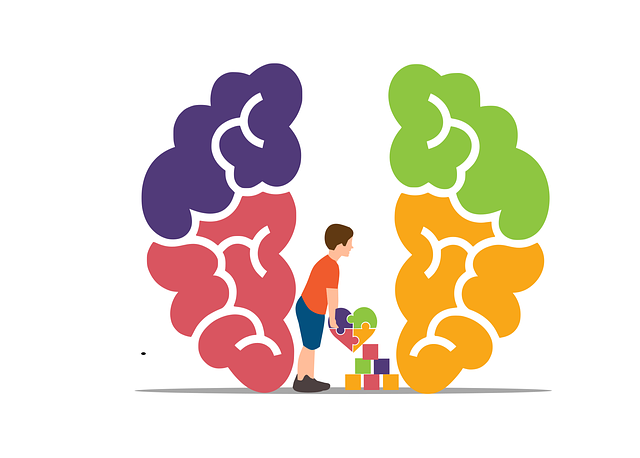Community outreach programs utilizing evidence-based strategies like Acceptance and Commitment Therapy (ACT) offer valuable therapy tailored to elders' unique needs. ACT teaches resilience, promotes mental wellness through mindfulness, journaling, and empathy-building techniques, creating supportive environments that enhance seniors' well-being and quality of life. Integrating these programs with strategic approaches, crisis intervention guidance, personalized preferences, and interactive workshops breaks down stereotypes, fostering acceptance and effective mental health outcomes for elders within their communities. Measuring impact through clear metrics and feedback ensures program relevance and effectiveness.
Community outreach programs play a vital role in enhancing elderly well-being, offering tailored support and fostering social connections. This article delves into the significance of such initiatives, focusing on Acceptance and Commitment Therapy (ACT) as an effective approach to improve mental health among seniors. We explore practical strategies for successful implementation, highlighting the power of community engagement in building bridges and promoting acceptance. Additionally, we discuss methods for measuring the impact of outreach programs, ensuring their effectiveness in serving elderly populations.
- Understanding Community Outreach: A Key to Elderly Well-being
- Acceptance and Commitment Therapy (ACT): An Effective Approach for Elders
- Strategies for Implementing Successful Outreach Programs
- Building Bridges: Fostering Acceptance through Community Engagement
- Measuring Impact: Evaluating the Success of Elderly Outreach Initiatives
Understanding Community Outreach: A Key to Elderly Well-being

Community outreach programs play a pivotal role in enhancing the well-being of elderly individuals, offering them support and opportunities for social engagement. Understanding the unique needs and challenges faced by this demographic is essential to designing effective initiatives. One evidence-based approach gaining traction is Acceptance and Commitment Therapy (ACT), which focuses on fostering resilience and promoting mental wellness among seniors.
Through ACT and other empathy-building strategies, community outreach can provide valuable therapy for elders. Resilience-building techniques empower the elderly to navigate life’s difficulties, while mental wellness journaling exercises offer guidance in cultivating a positive mindset. By integrating these practices into outreach programs, communities can create a supportive environment that improves overall well-being and enhances the quality of life for their senior members.
Acceptance and Commitment Therapy (ACT): An Effective Approach for Elders

Acceptance and Commitment Therapy (ACT) has emerged as a powerful approach to improving mental well-being among elders, offering them a unique path to navigate through challenges and enhance their quality of life. This therapy encourages individuals to accept their emotions and experiences rather than fighting them, fostering a sense of flexibility in thinking and behaving. By promoting mindfulness meditation, ACT equips seniors with effective stress reduction methods, enabling them to handle everyday pressures and potentially prevent the onset of more severe mental health issues.
The benefits are particularly notable in crisis intervention guidance, where ACT can assist elders in making meaningful choices aligned with their personal values. This therapy’s focus on present-moment awareness and acceptance allows seniors to let go of negative thought patterns and engage in activities that bring them joy, ultimately leading to a more fulfilling and resilient life.
Strategies for Implementing Successful Outreach Programs

Implementing successful community outreach programs requires a strategic approach, especially when targeting vulnerable populations like elders. One effective strategy is to integrate evidence-based therapeutic models such as Acceptance and Commitment Therapy (ACT). ACT has proven beneficial in managing anxiety relief and stress, which are prevalent issues among older adults. By offering therapy sessions tailored to their needs, community outreach programs can enhance the overall well-being of seniors, empowering them to lead more fulfilling lives.
Additionally, these programs should focus on building trust and fostering open communication. Crisis intervention guidance can play a vital role here by providing immediate support and ensuring elders feel heard and understood. Tailoring interactions to individual preferences and cultural sensitivities is key to encouraging participation and acceptance. Through such personalized approaches, community outreach initiatives can effectively address mental health concerns, offering much-needed therapy for elders within their own communities.
Building Bridges: Fostering Acceptance through Community Engagement

Community outreach programs play a pivotal role in building bridges and fostering acceptance within diverse populations, especially when targeting therapy for elders. By engaging with communities directly, these initiatives create opportunities for connection and understanding, addressing barriers that often isolate vulnerable groups. Through interactive workshops, mental wellness podcast series production, and social events, community members can come together to break down stereotypes and promote inclusivity.
Acceptance and Commitment Therapy (ACT), for instance, has shown promise in improving mental health outcomes for older adults by encouraging them to engage in valued activities despite anxiety relief challenges. Implementing these therapeutic approaches within a community outreach program implementation allows for a holistic approach, where individuals not only gain access to much-needed support but also become active participants in shaping their well-being and the social fabric of their communities.
Measuring Impact: Evaluating the Success of Elderly Outreach Initiatives

Measuring the impact of community outreach programs for elderly individuals is a crucial aspect of evaluating their success and effectiveness. When implementing initiatives aimed at supporting seniors, such as therapy sessions incorporating Acceptance and Commitment Therapy (ACT), it’s essential to have clear metrics in place to assess both short-term and long-term outcomes. This involves tracking improvements in mental health, overall well-being, and the development of coping skills. By collecting data on participants’ satisfaction levels and behavioral changes, organizations can gain valuable insights into what aspects of the program are most beneficial.
For example, evaluating the success of elderly outreach programs could include assessing improvements in social isolation, depression, or anxiety symptoms. Additionally, measuring the uptake of trauma support services or crisis intervention guidance within these initiatives can highlight their importance and reach within the community. Through regular evaluations and feedback mechanisms, organizations can adapt their strategies to better serve the unique needs of seniors, ensuring that outreach programs remain relevant, impactful, and tailored to the specific challenges faced by this demographic.
Community outreach programs, particularly those incorporating Acceptance and Commitment Therapy (ACT), play a pivotal role in enhancing the well-being of elderly individuals. By fostering acceptance and commitment through community engagement, these initiatives bridge gaps in care and support. Measuring their impact is crucial for evaluating success and refining strategies. Moving forward, continued emphasis on evidence-based practices like ACT will ensure that outreach programs remain effective, ultimately improving the quality of life for our aging population.














